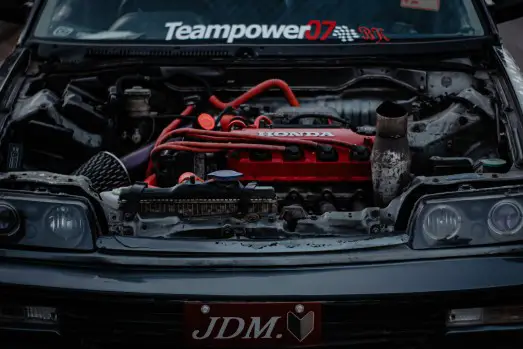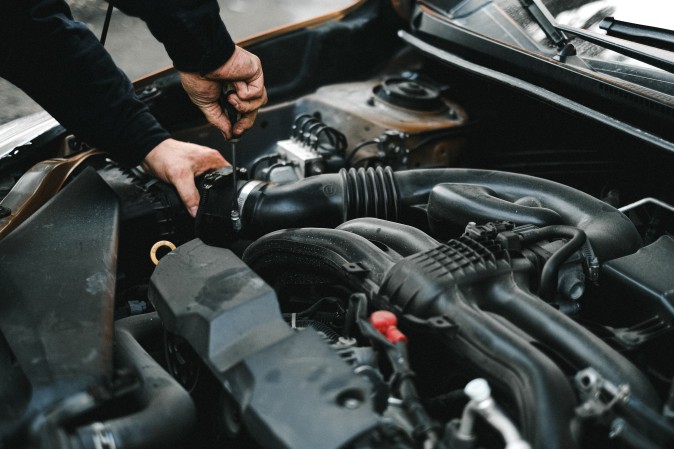The appropriate lubricant selection becomes crucial in the complex world of engine oils, where the health and lifespan of our cars’ engines are at stake. Three well-known brands—Delo, Rotella, and Delvac—stand out as industry mainstays among the plethora of alternatives available. These engine oils compete for customers’ attention as they make their way through the intricate web of options, each with a distinct history, formula, and marketing proposition. When car enthusiasts look for the ideal combination of durability, functionality, and affordability, a comparison between Delo, Rotella, and Delvac becomes imperative.
Understanding Engine Oil Basics:
It is important to understand the basic ideas that underpin the need for engine oil in the correct running and lifetime of internal combustion engines before diving into the particulars of Delo, Rotella, and Delvac engine oils.
1. Lubrication:
- By acting as a lubricant, engine oil lowers friction between the engine’s moving parts. To maintain smooth operation, minimize engine wear and tear, and extend engine life, friction reduction is essential.

2. Heat Dissipation:
- While operating, engines produce a lot of heat. By transferring the heat away from important parts like the engine block and pistons, engine oil is essential in the dissipation of this heat. Maintaining ideal operating temperatures and avoiding overheating are made possible by efficient heat dissipation.
3. Contaminant Removal:
- By capturing and suspending impurities like dirt, metal shavings, and combustion byproducts, engine oil serves as a cleaning agent. In addition to eliminating these contaminants, the oil filter also helps to shield engine parts from harm.
4. Seal Conditioning:
- Engine oils have a role in preserving the integrity of the engine’s gaskets and seals. The oil aids in controlling pressure and maintaining an appropriate seal, which averts oil leaks by keeping these parts from drying out or breaking.
5. Corrosion Prevention:
- Additives intended to prevent corrosion are frequently used in engine oil formulations. This is especially crucial for engines that can be subjected to moisture or severe weather since corrosion can weaken the structural integrity of engine parts.
6. Viscosity and Temperature:
- Viscosity is a crucial characteristic that quantifies an oil’s resistance to flow. The viscosity of engine oils is designed to remain constant throughout a wide temperature range. This guarantees appropriate protection at higher operating temperatures while maintaining proper oil flow during cold starts.
7. Additives:
- To improve performance, modern engine oils include a variety of additives. These might contain anti-wear additives, cleaning detergents, antioxidants to stop oil degradation, and viscosity index enhancers to keep performance constant at different temperatures.
Delo Engine Oil:
With its reputation for superior lubrication, Delo has left its imprint on the automobile industry throughout the years. As a well-known brand of engine oil serving a wide variety of automobiles and industrial uses, Delo is produced by the multinational energy corporation Chevron. Delo has a long history of leading the way in innovation and has always been able to adjust to the changing demands of contemporary engines.
Key Features and Specifications: For a wide range of operating circumstances, Delo engine lubricants are designed to provide maximum protection and performance. Among the principal attributes and attributes are:
- Viscosity Grades:
- Delo gives customers access to a wide selection of viscosity grades so they may select the oil that best suits their engine needs. Delo’s adaptability makes it appropriate for a wide range of uses, including industrial machines, heavy-duty trucks, and light-duty cars.
- Additive Packages:
- Advanced additive packages are used in Delo engine lubricants to improve their cleaning and protection qualities. These additives help keep deposits from forming, reduce wear, and increase the lifespan of engine parts.
- Compatibility with Different Engine Types:
- Delo is well known for its adaptability, supporting a wide range of engines, including gasoline- and diesel-powered ones. Its versatility makes it the preferred option for a variety of car owners, from private owners to fleet managers for businesses.
Performance in Various Conditions:
Delo is distinguished by its remarkable capabilities under demanding circumstances, guaranteeing dependable lubrication at critical moments.
- High-Temperature Stability:
- One of Delo’s main points of reliability is its ability to withstand thermal breakdown at hot temperatures. For engines running under harsh conditions or with high loads, this is especially important.
- Cold-Weather Performance:
- To provide the best flow characteristics at startup in freezing conditions, Delo engine oils are formulated with cold-weather scenarios in mind. In cold areas as well, this function is essential for prompt lubrication and protection.

Rotella Engine Oil:
Overview of Rotella’s Brand History:
Rotella has made a name for itself in the engine oil market and is regarded as a strong option for fans of diesel engines. Rotella, created and produced by the multinational energy and petrochemical corporation Shell, has a long history of meeting the requirements of heavy-duty diesel engines. With a history spanning several decades, Rotella has developed steadily to suit the demands of contemporary engines and maintain its solid performance record.
Notable Characteristics and Specifications: With a concentration on diesel engines, Rotella engine oils provide various formulas designed to satisfy demanding applications’ needs.
- Viscosity Ranges:
- Rotella offers a range of viscosity ranges to suit various diesel engine requirements. Due to this versatility, customers may choose the oil that best suits their unique engine needs, considering variables like operating circumstances and environment.
- Specialized Formulations:
- Rotella is renowned for its customized solutions created to meet the difficulties encountered by diesel engines. Trucking and industrial applications use it because of its superior wear protection, deposit control, and resistance to breaking down at feverish temperatures.
Performance in Specific Applications:
Because of its exceptional performance in heavy-duty diesel engines, Rotella has an excellent reputation and is often chosen for certain applications.
- Heavy-Duty Diesel Engines:
- When it comes to offering heavy-duty diesel engines—which are frequently found in commercial vehicles, construction equipment, and agricultural machinery—robust protection, Rotella shines. Its compositions are designed to withstand the elevated levels of stress that these applications bring with them.
- Gasoline Engines:
- Although Rotella’s primary market is diesel engines, several of its formulas may also be used in petrol engines. Its flexibility increases its versatility and makes it a viable choice for mixed fleets that contain both gasoline- and diesel-powered cars.
Delvac Engine Oil:
Introduction to Delvac and Its Place in the Market:
Within the heavy-duty lubricant market, ExxonMobil’s prestigious Delvac engine oil brand has established itself as a formidable force. Specially designed for tough uses, Delvac has established itself as a mainstay for heavy-duty machinery, construction equipment, and commercial fleets. Delvac has cemented its standing as a reliable lubricant supplier for high-performance engines by adhering to innovation and surpassing industry requirements.
Key Features and Formulations: Heavy-duty engine needs are met with a complete range of features by Delvac engine oils, which are well-known for their sophisticated formulas.
- High Detergent Levels:
- Delvac ensures that engine components are thoroughly cleaned by including high quantities of detergents in their compositions. This keeps engines as clean and as efficient as possible by preventing deposits and sludge accumulation.
- Wear Protection:
- Delvac is designed to offer exceptional wear protection in the most demanding operational scenarios. Important engine parts experience less wear and friction because of the formulation’s anti-wear chemicals, which also form a protective barrier.
- Fuel Efficiency Improvements:
- Delvac’s formulas are engineered to minimize friction and maximize engine performance, demonstrating their dedication to fuel efficiency. Improved fuel economy is in line with modern environmental concerns and helps save expenses.
Compatibility with Different Engine Types and Conditions:
Delvac is a dependable option for a wide range of applications because of its adaptability to different engine types and operating circumstances.
- Heavy-Duty Applications:
- Delvac is designed especially for heavy-duty diesel engines, which are frequently found in buses, trucks, and other industrial machinery. Strong formulations are designed to endure the extreme heat and strain connected with these uses.
- Fleet Operations:
- Because Delvac can consistently sustain engine performance over long service intervals, fleet operators value it. In demanding fleet situations, this is essential for maximizing operating efficiency and minimizing downtime.
Price and Value Comparison:
I. Pricing Considerations for Each Brand:
A. Delo:
1. There is competition in the price range of Delo engine lubricants.
2. The precise composition, viscosity grade, and packing size may all affect the price.
3. To assess Delo’s total worth, one must weigh its cost about its features and functionality.
B. Rotella:
1. Rotella and Delo usually have comparable price points.
2. There may be a modest price increase for certain formulas made for heavy-duty diesel engines.
3. Rotella’s applicability for specific applications and performance attributes is directly correlated with its cost-effectiveness.

C. Delvac:
1. Delvac could be priced more since it serves heavy-duty applications.
2. Advanced formulas, specialty additives, and improved performance in harsh environments might make the increased price point worthwhile.
3. Evaluating Delvac’s worth entails comparing the initial investment to possible long-term advantages and engine protection.
II. Evaluating Value for Money:
A. Performance and Longevity:
1. Evaluating the value proposition entails considering the performance advantages provided by every engine oil.
2. Extended oil change intervals and engine protection are two indicators of longevity, which increases the total value of the money.
B. Fuel Efficiency:
1. Engine oils with higher fuel economy have the potential to save money over time.
2. Analyzing each brand’s effect on fuel usage over time aids in determining its economic worth.
III. Additional Factors Affecting Overall Cost:
A. Oil Change Intervals:
1. Reduced maintenance expenses and downtime may result from longer oil change intervals.
2. It is important to consider if each engine oil is compatible with longer drain intervals.
B. Application Suitability:
1. Avoid needless wear and tear by selecting engine oil that exactly matches the specifications of the car.
2. Each brand’s total worth is determined by how well-suited it is for purposes.
Environmental Impact:
The environment is becoming an increasingly crucial consideration when it comes to engine lubricants. Delo, Rotella, and Delvac are three well-known brands that vary in terms of performance and commitment to sustainability. Chevron’s environmentally conscious production methods, which emphasize energy efficiency and waste reduction, provide Delo with a competitive edge. Shell’s commitment to reducing its carbon footprint and promoting ecologically friendly packaging is shown by Rotella. ExxonMobil’s Delvac product line is ecologically friendly since it emphasizes ethical production techniques and provides information for the proper disposal and recycling of its items. By examining the operations of these companies, consumers may select items that maximize engine economy and help create a greener automotive environment.
Frequently asked questions:
Are diesel engines better off using Mobil Delvac oil?
Mobil Delvac oil is an excellent option for diesel engines because it provides improved protection, increased longevity, and optimal performance in harsh environments.
Which oil is best for diesel engines?
Many people consider Mobil Delvac oil to be a great option for diesel engines since it provides exceptional performance and protection.
Is Delo an effective diesel oil?
Delo is a well-known diesel engine oil that is amazingly effective due to its sophisticated formulas and dependable performance.
What benefits does Delo offer?
Because of its superior engine protection, robustness, and consistent performance, Delo is a recommended option for a wide range of applications.
Conclusion:
Lastly, the optimum choice among Delo, Rotella, and Delvac will need to be determined after a thorough examination of cost, performance, and environmental impact. Delo impresses with its wide variety of applications and commitment to sustainability, while Rotella stands out for its concentration on heavy-duty diesel engines. Built for tough conditions, Delvac has a dedication to environmental responsibility. Before making a purchase, which comes down to personal tastes, consumers are advised to consider factors including engine needs, budgetary constraints, and ecologically responsible techniques. diverse brands provide diverse value propositions that empower customers to make decisions that align with their objectives, whether they are high performance, cost-effectiveness, or environmental stewardship.

